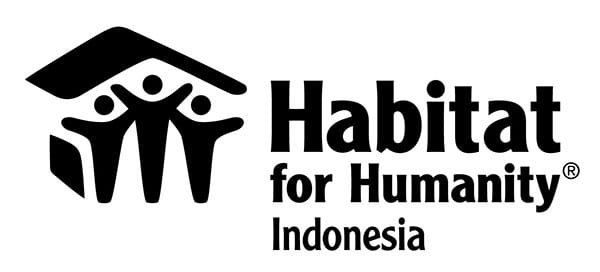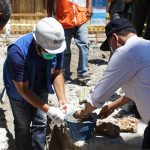Friday, Sept 24, 2021 – Habitat for Humanity Indonesia, as part of a global humanitarian movement under the auspices of Habitat for Humanity International, also promotes World Habitat Day, which is commemorated every October 4, 2021.
Through various programs and collaborations with multiple parties, Habitat Indonesia seeks to express its impact in many aspects of life by focusing on housing issues. The impact expressed through our work extends beyond decent buildings to live in, health, education, and even indirectly to the economic improvement and development for families in need and the country.
The construction industry — led by homebuilding — is a large, often-overlooked source of jobs in emerging market economies, according to a report released today by Habitat for Humanity to mark World Habitat Day.
Every $1 million in construction output creates an average of 97 jobs in emerging markets, economists at the University of Pennsylvania, the University of Southern California, and the University of Washington found in the report commissioned by Habitat for Humanity’s Terwilliger Center for Innovation in Shelter. That compares to 81 jobs created per $1 million in agricultural output and 96 jobs per $1 million in output in the accommodation and food services sector, according to the report, which focuses on 9 countries: Brazil, Colombia, India, Indonesia, Mexico, Peru, the Philippines, South Africa, and Uganda.
“Investment in residential construction represents a potential win-win-win in emerging markets because it creates such a large number of jobs locally, helps close stubborn gaps in affordable housing and stimulates the larger economy,” said Patrick Kelley, vice president of Habitat’s Terwilliger Center. “These findings are critically important for low- and middle-income countries deciding what areas to prioritize as they work to build back economies weakened by the COVID-19 pandemic, particularly in a world where 1.6 billion people still lack adequate shelter.”
In Indonesia, construction for low-income families can help them live, be independent, and be sustainable. During the pandemic, the main stronghold house is protected from the virus. Through decent housing, low-income families in Indonesia can survive and do work to maintain the family’s economic stability.
During its 24 years of service in Indonesia, Habitat Indonesia, through its housing and home support programs, has supported more than 165,000 families. In providing it, Habitat Indonesia also involves beneficiaries and local communities in building so that they have the opportunity to work.
Find more information about the report titled A Ladder Up: The construction sector’s role in creating jobs and rebuilding emerging market economies on October 4th, 2021 trough Habitat Indonesia social media and websites.



